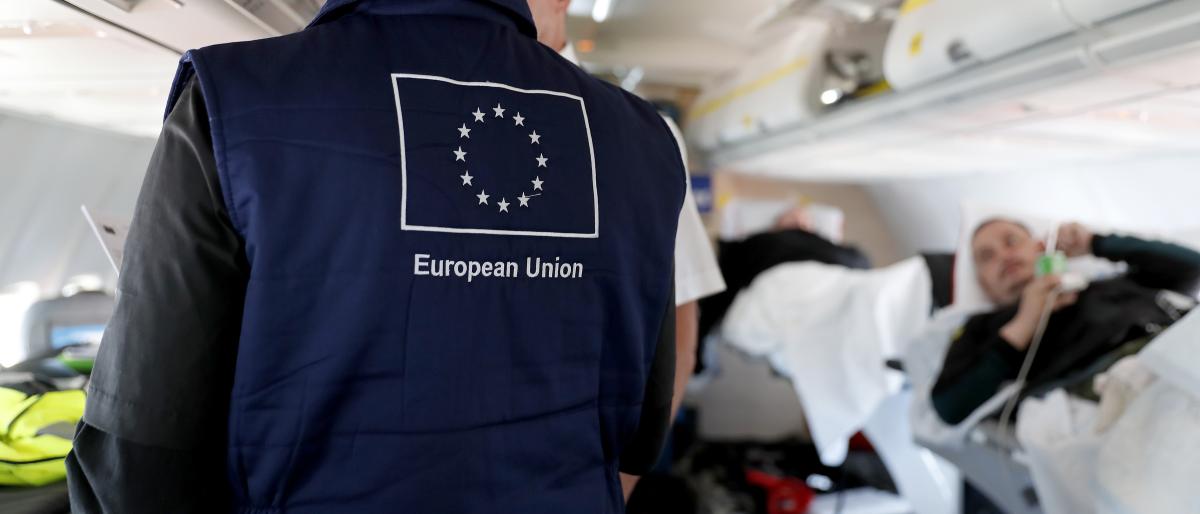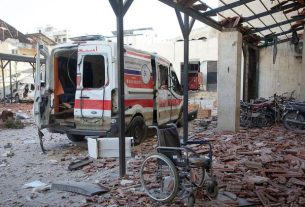The EU has been coordinating regular medical evacuations of Ukrainian patients, be they chronically ill or injured since the beginning of Russia’s war on the country.
As of today, more than 3,000 Ukrainian patients have been transferred to receive specialised care in hospitals across Europe via the EU Civil Protection Mechanism.
Launched in March 2022, it is the largest medical evacuation operation coordinated by the European Commission’s Emergency Response Coordination Centre to date.
The patients have been transferred for treatment to hospitals in 22 European countries: Austria, Belgium, Croatia, Czech Republic, Denmark, Estonia, Finland, France, Germany, Hungary, Ireland, Italy, Lithuania, Luxembourg, the Netherlands, Norway, Poland, Portugal, Romania, Slovenia, Spain, and Sweden.
The evacuations are further supported by the EU Medevac Hub in Rzeszów, Poland where patients receive 24/7 nursing care. The hub serves as a transfer centre for patients who have been transported from Ukraine to Poland by land, and who from the hub will be airlifted to hospitals across Europe.
Commissioner for Crisis Management Janez Lenarčič said: “We cannot turn our eyes away from the horrors Ukrainian people are forced to face day by day. As Russia continues its ruthless attacks on Ukraine’s civilian infrastructure, including hospitals, providing emergency assistance to Ukraine is as crucial as ever. Today we mark a milestone of transferring more than 3,000 Ukrainian patients to hospitals across Europe. I express my gratitude to all 22 countries who have opened their hospitals to patients in need of treatment. Together, we are saving lives.”
Commissioner for Health and Food Safety Stella Kyriakides said: “As of today, 3,000 Ukrainian patients in urgent need of medical treatment have been successfully transferred to hospitals across Europe thanks to the generosity, solidarity and cooperation of 22 countries through the EU’s solidarity mechanisms. As we have always said, Ukraine and its people can count on the EU’s support for as long as necessary.”



